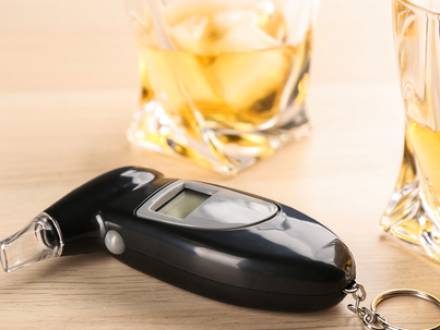"Sniffing" for Alcohol: Are Passive Sensors Legal in Illinois?
 When police officers testify in DUI trials, you will often hear them say that they "smelled alcohol" on the driver’s breath or when they leaned in the open car window to speak to the driver. And, in fact, an officer smelling alcohol gives him or her the necessary probable cause to ask the driver to perform field sobriety tests or take a portable breathalyzer test.
When police officers testify in DUI trials, you will often hear them say that they "smelled alcohol" on the driver’s breath or when they leaned in the open car window to speak to the driver. And, in fact, an officer smelling alcohol gives him or her the necessary probable cause to ask the driver to perform field sobriety tests or take a portable breathalyzer test.
What most drivers may not realize is that in some cases, the "smell" may actually come from a passive alcohol sensor hidden inside the officer’s flashlight or other traffic-stop device. These tools detect alcohol vapor in the air around a driver before any formal test or consent occurs.
The use of these devices, while legal in Illinois, raises serious questions regarding whether drivers are being screened without consent. You can find out more about PAS devices below; however, speaking with a knowledgeable Naperville, IL DUI lawyer is always the best step for the most positive outcome available.
What Is a Passive Alcohol Sensor?
A PAS is a small, battery-powered device that detects alcohol vapor in ambient (outside air that the general public breathes) air. These devices are commonly built into flashlights or clipboards used by police during DUI stops. The purpose of the device is to help officers form "reasonable suspicion" before asking the driver to perform a chemical test.
A PAS device collects air passively without the driver’s knowledge, while a Preliminary Breath Test (PBT) requires the driver to blow into a device. While the PAS may detect alcohol in the air, it does not measure its concentration. A small fan in the PAS pulls air from the surrounding area into the sensor.
If alcohol is present, the fuel cell reacts, generating a small electrical current which is processed and displayed to indicate a positive or negative result. A PAS can return a false positive if the driver has been drinking certain citrus-based drinks, so a PBT test is necessary to confirm alcohol consumption.
How Does Illinois Law Treat Passive Alcohol Sensors?
The implied consent provisions under the Illinois DUI statute 625 ILCS 5/11-501 are interpreted as allowing the use of PAS devices. However, PAS devices are not explicitly defined in Illinois law, making this a gray area. It is also important to note that PAS devices are not regulated by the Illinois State Police, unlike other approved testing devices used for evidentiary purposes.
How Can an Individual Tell if a PAS Device Was Used?
Police reports will likely say something like "odor of alcohol detected by flashlight sensor" if a PAS device was used. The PAS can establish probable cause that, in turn, justifies extending a traffic stop, administering field sobriety tests, and asking the suspect to blow into a preliminary or portable breath test device. There is no disclosure to the driver, no definitive numerical reading, and no calibration records for these devices. Although PAS readings are not admissible as proof of impairment, their use can influence probable cause findings.
What Are the Arguments for and Against PAS Devices?
A PAS device detects alcohol vapor without the driver’s consent, which is equivalent to a warrantless search. The counterargument is that officers have the right to use their senses, including devices that enhance them. There is no standardized calibration or operator training requirements for PAS devices in Illinois; however, readings are considered environmental because they are affected by passengers, proximity, and open containers. While defense attorneys may demand manufacturer data, maintenance logs, or device records related to PAS devices, that data is rarely documented.
Contact a DuPage County, IL DUI Defense Lawyer
Your Naperville, IL criminal defense attorney from Appelman Law LLC may file a motion to suppress based on an unlawful search or lack of probable cause, or argue that the PAS was unreliable due to contamination in the form of sanitizers, perfume, or open windows. There are additional defenses your attorney can use when a PAS is used as probable cause. Attorney Appelman has extensive experience in DUI and criminal defense cases and holds a master’s degree in forensic psychology. Call 630-717-7801 to schedule your free consultation.





